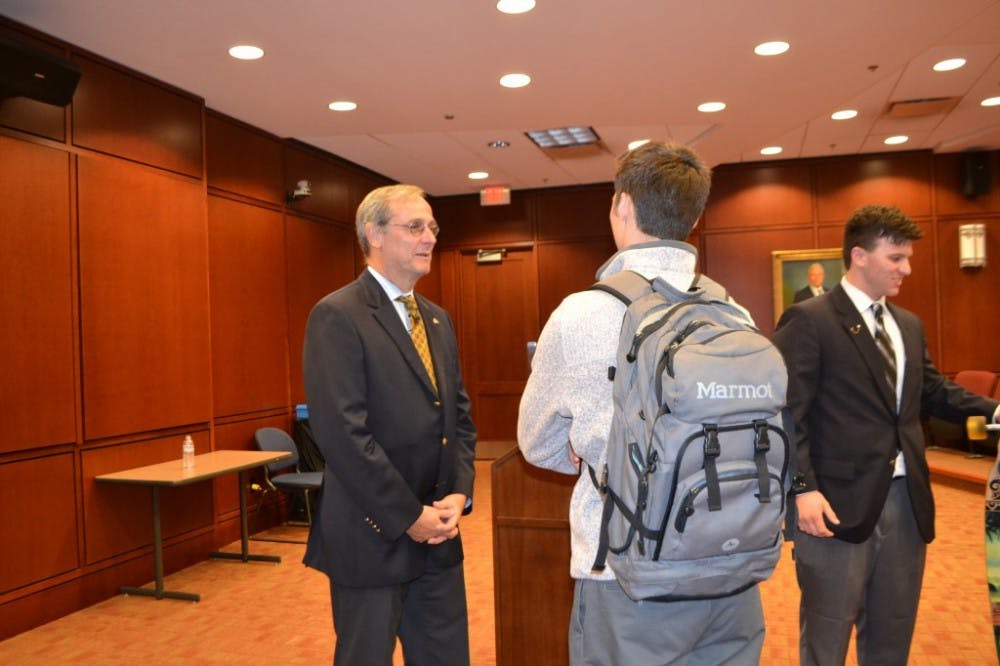With the international economy becoming more and more intertwined, Consul General Christoph Sander of the Federal Republic of Germany came to Elon University Wednesday evening to talk transatlantic trade and ongoing economic issues within his home country.
The Business German Speaker Series worked with the Student Professional Development Center to bring Sander to campus. To date, Sander is the highest-ranking government official from Germany to ever pay a visit to Elon University. He currently works in Atlanta, Georgia.
Germany invests nearly $3 billion in the North Carolina economy, most in the research triangle. The state is also America’s fourth largest trade partner behind Canada, China and Mexico.
The Transatlantic Trade and Investment Partnership that Sander talked about proposes free trade between the European Union and the U.S. The agreement would work to decrease tariffs as well as cumbersome standards and regulations.
“Both Europe and the U.S. are democratic nations and, to a wide extent, share the same values,” Sander said. “If we can get together as democratic nations and agree on a common set of [trading] standards, that would be a very important step to world trade.”
Many Germans, including Sander’s aunt, are worried about large corporations taking over German cultural products with these new trading standards, but Sander said they would still “protect the little guy.”
“I’m not saying it’s easy—I’m just saying there are huge benefits from increased trade,” Sander said.
Sander mentioned that Germany is facing many issues with their demographics as well as their trade.
“Germany, as a nation, does not grow,” Sander said.
With only 82 million people in the nation, said Sander, and their dependence upon the working generation, this could become a problem.
Denise Hill, instructor in communications, asked how immigration is effecting German culture and German enthusiasts may be glad to know that Germany is becoming more accepting towards immigrants.
“We have never seen ourselves as an immigration nation, but immigration is part of the answer to the demographic problems,” Sander said.
Germany has recently passed a law allowing students who attend a German university, but are not a citizen, and get a job within a year of graduation to stay in Germany.
“I’m looking into staying in Germany after I graduate, so it was interesting to learn about the opportunity to stay in the country since Germans aren’t usually too interested in accepting new citizens,” sophomore and dual-degree student Adrian Freyermuth said.
The German dual-degree students spend two years at Elon University and two years at a partnering university in Germany. They receive degrees from both schools, and some choose to stay in Germany after graduation. Many of the students attended the speech to hear about Germany’s strong relationship with the United States—North Carolina specifically.
The Business German Speakers Series focuses on bringing German-based business representatives to campus to inform students about their prospective jobs and the importance of knowing the language in the job field. For students interested in future speakers, contact David Neville.


